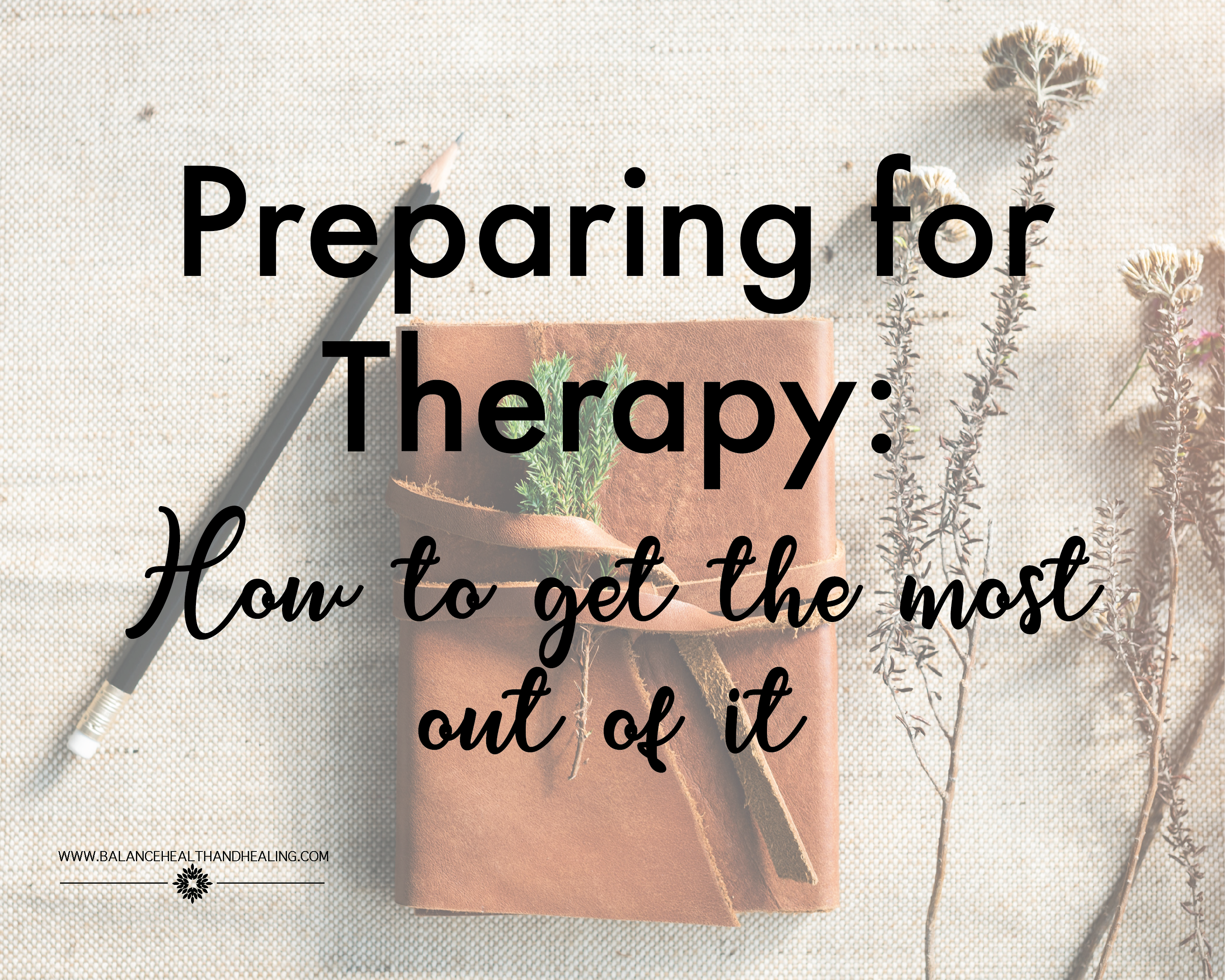The mental health stigma is real. Research shows that the majority of people have negative perceptions, attitudes, and stereotypes towards people with mental illness.
“Oh. You go to therapy?”
“Isn’t therapy for crazies?”
Well, let me tell you. In my experience in out patient settings like Balance, Health and Healing, typical clients in therapy are usually high functioning, intelligent, successful individuals dealing with a myriad of presenting concerns. So, no, you are not crazy for going to therapy.
Whether you are an experienced client or have no experience and are contemplating whether or not to seek treatment, here are a few suggestions on how to prepare for and get the most out of therapy:
Identify your goals
In your first session be prepared to articulate the issues you would like to focus on in the course of therapy treatment. It is important that your therapist understands what brings you in to counseling. Together with your therapist, you will discuss a treatment plan and over time, you will likely revisit the goals that you set and identify areas of progress and growth.
Lean in to the discomfort
Anxiety. Depression. Eating disorders, Sexual trauma. Perfectionism. Addressing all things mental health could sometimes feel emotionally draining, exhausting, and uncomfortable. Therapy will require that you stretch out of your comfort zone. The more you lean in, the more you will get out of your experience in therapy.
Bring everything to the session
Bring your experiences, questions, and unfiltered emotions to therapy. Bring your tears, frustrations, shame, and insecurities. Without judgment, notice what emotions you feel inclined to avoid. Whatever you are feeling, give yourself permission to express it in therapy where we could process what is going on, what it means to you, and how to cope.
Relationships take time to grow
As a therapist, I do my best to show up with empathy, unconditional positive regard, and understanding for clients with varying presenting concerns. Sometimes I may have an instant connection with a client, however, a strong working relationship takes time to be nurtured and grown. Having said this, if something is not working for you in therapy, mention it. Likewise, if you would like your therapist to continue doing something that is effective for you, make that explicit too.
varying presenting concerns. Sometimes I may have an instant connection with a client, however, a strong working relationship takes time to be nurtured and grown. Having said this, if something is not working for you in therapy, mention it. Likewise, if you would like your therapist to continue doing something that is effective for you, make that explicit too.
Therapy is collaboration
As a therapist, I try hard not to jump into “problem-solving” mode because I do not believe that it is effective in your work. Instead, I will collaborate with you, help raise awareness of any blind spots you might have, help you to explore your values and then help you to align your decisions with those values.
Keep track outside of session
I typically meet with clients weekly but between our sessions, it might be helpful for you to keep a tab of highlights or lowlights that you would like us to discuss. I don’t know about you but sometimes I forget what I had for breakfast, let alone what happened over the past week, especially when I am asked on the spot. In therapy, I would recommend that you keep a “note” on your phone about possible events you might want to discuss further. Then before our session you can glance over your list and decide what you would like to talk about.
Plan ahead
When scheduling your appointment, choose a time that would give you a few minutes before and/or after your session for contemplation, reflection, and introspection or even just to calm down and breathe after doing some difficult work in therapy. This might take some trial and error to experiment with your schedule but some factors to consider include: What time of day do you have energy to talk about mental health issues? What do you have planned for the rest of the day? Will you have the emotional energy to return to school/work after your session or should you schedule your session at the end of your day?
 Hang in there
Hang in there
When you are cleaning or de-cluttering an area in your house, do you notice that it will look messier as you are taking everything out and organizing it before it gets cleaner? I believe that sometimes therapy can be like this. It might feel uncomfortable when you are diving into painful issues and allowing yourself to feel difficult emotions but if you continue to show up and open up, then over time, it will get better.
Not all sessions have happy endings
Resist the urge to wrap up “nicely” before the end of the session. Not all sessions will end on a happy note. Although we like happy endings in movies, therapy is a process and the conclusion of one session is not “the end” of this process. You may have to sit in the discomfort and ambivalence until the next session. That is part of the work.

